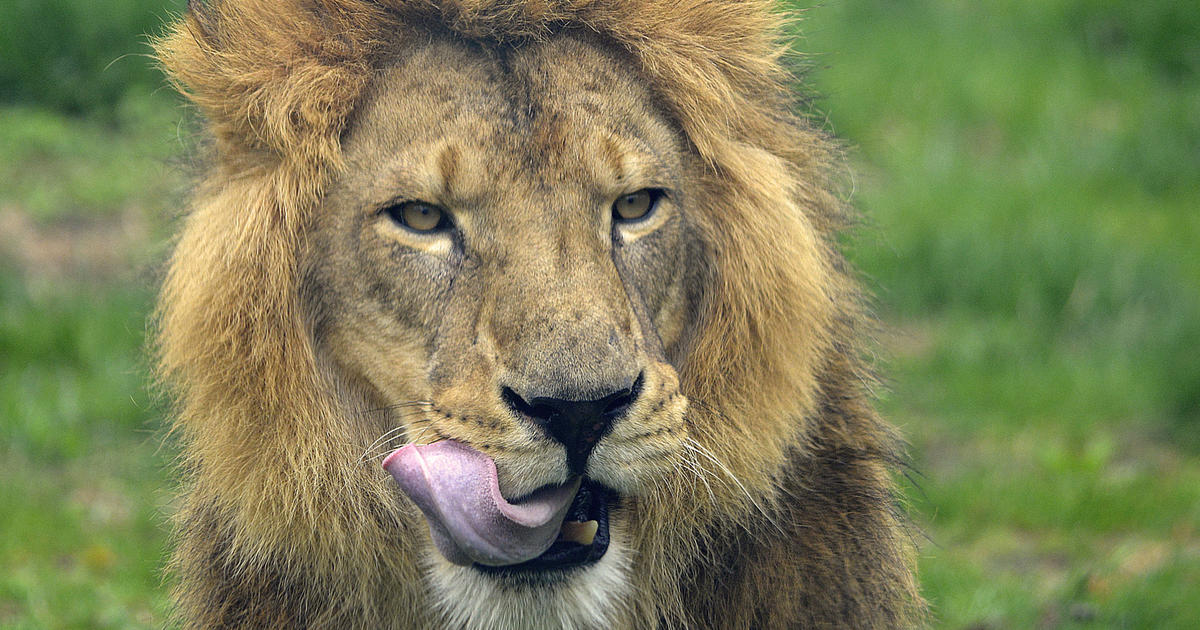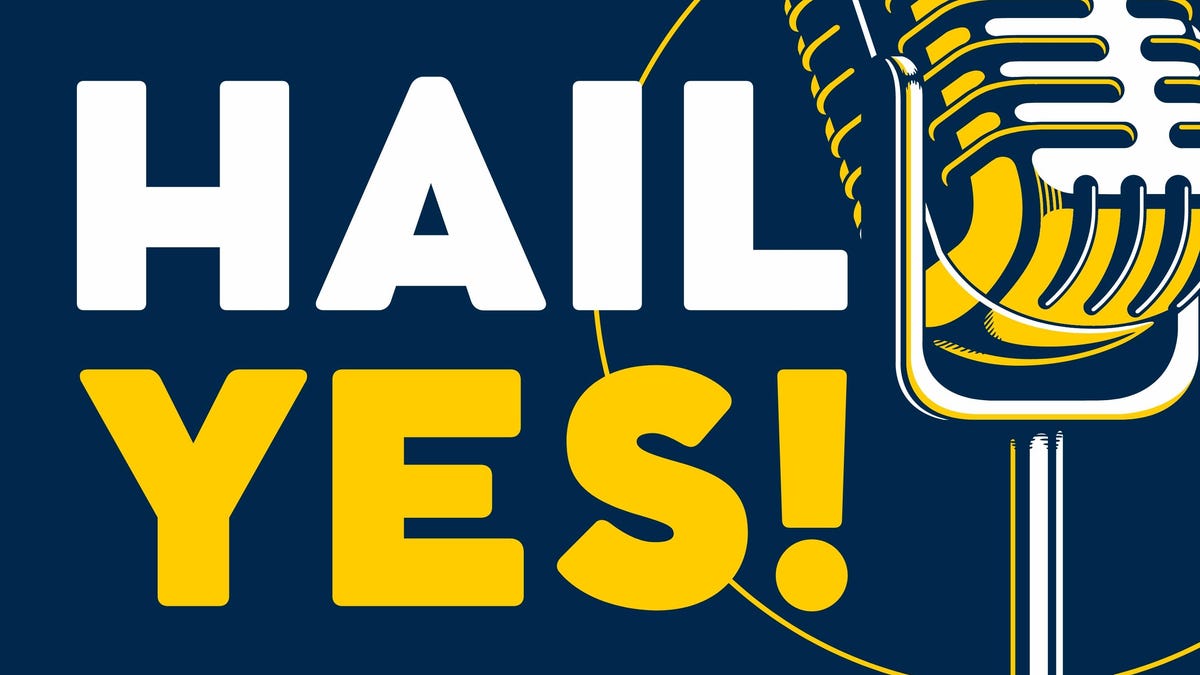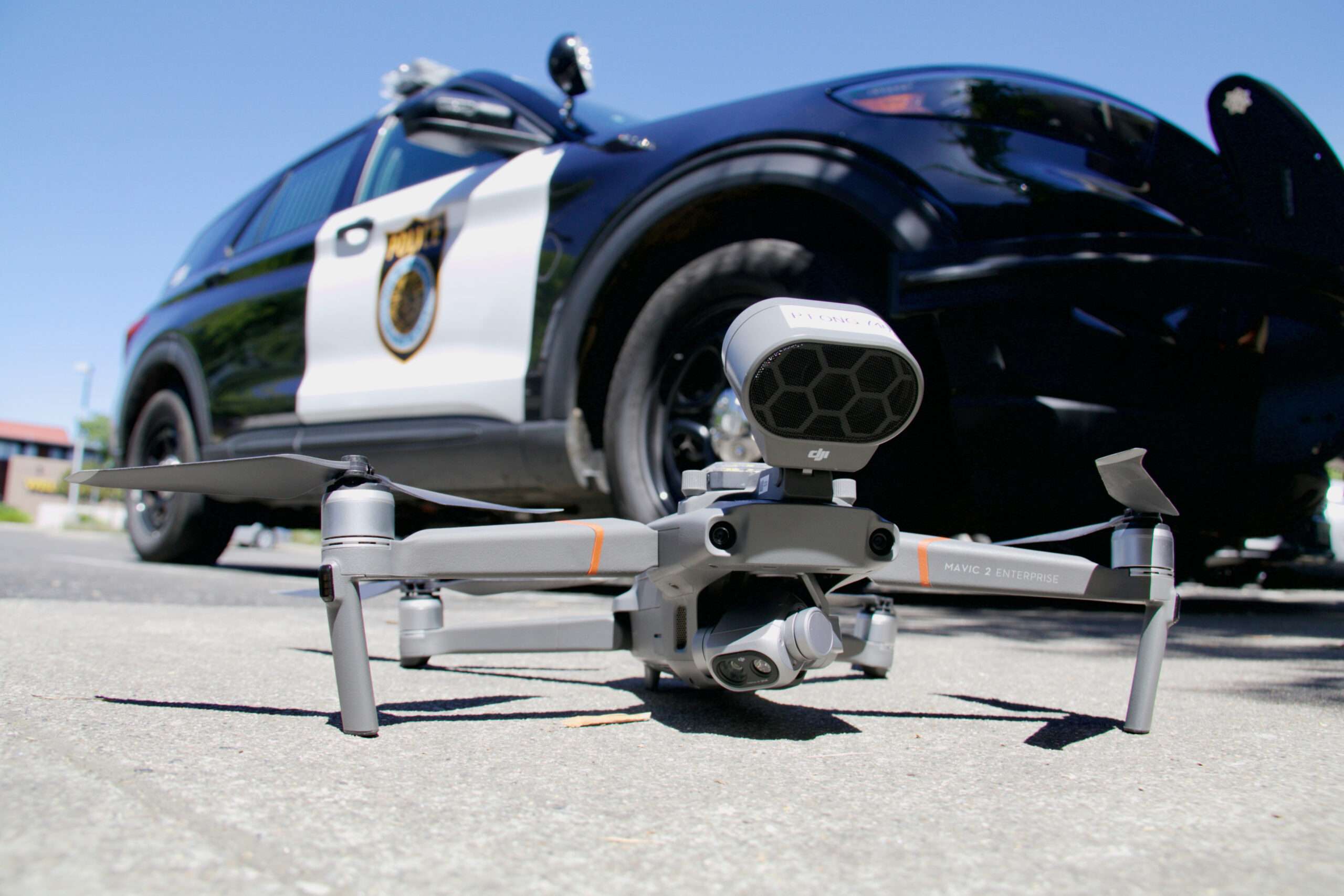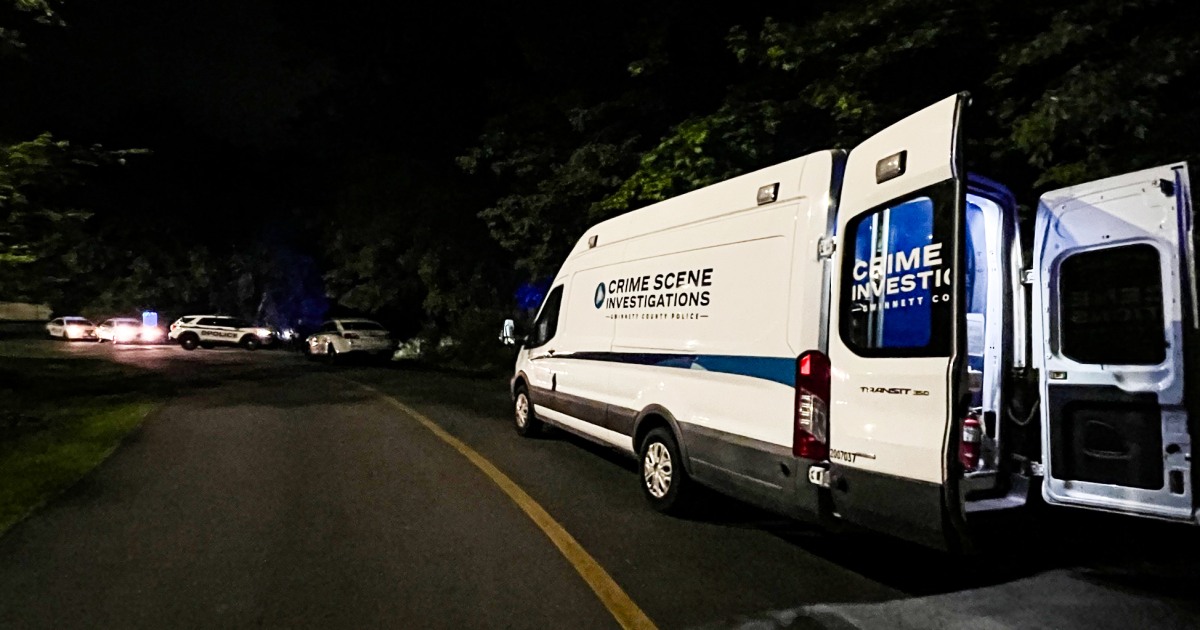Seattle, WA
Seattle Seahawks Select TE AJ Barner In 4th Round Of NFL Draft
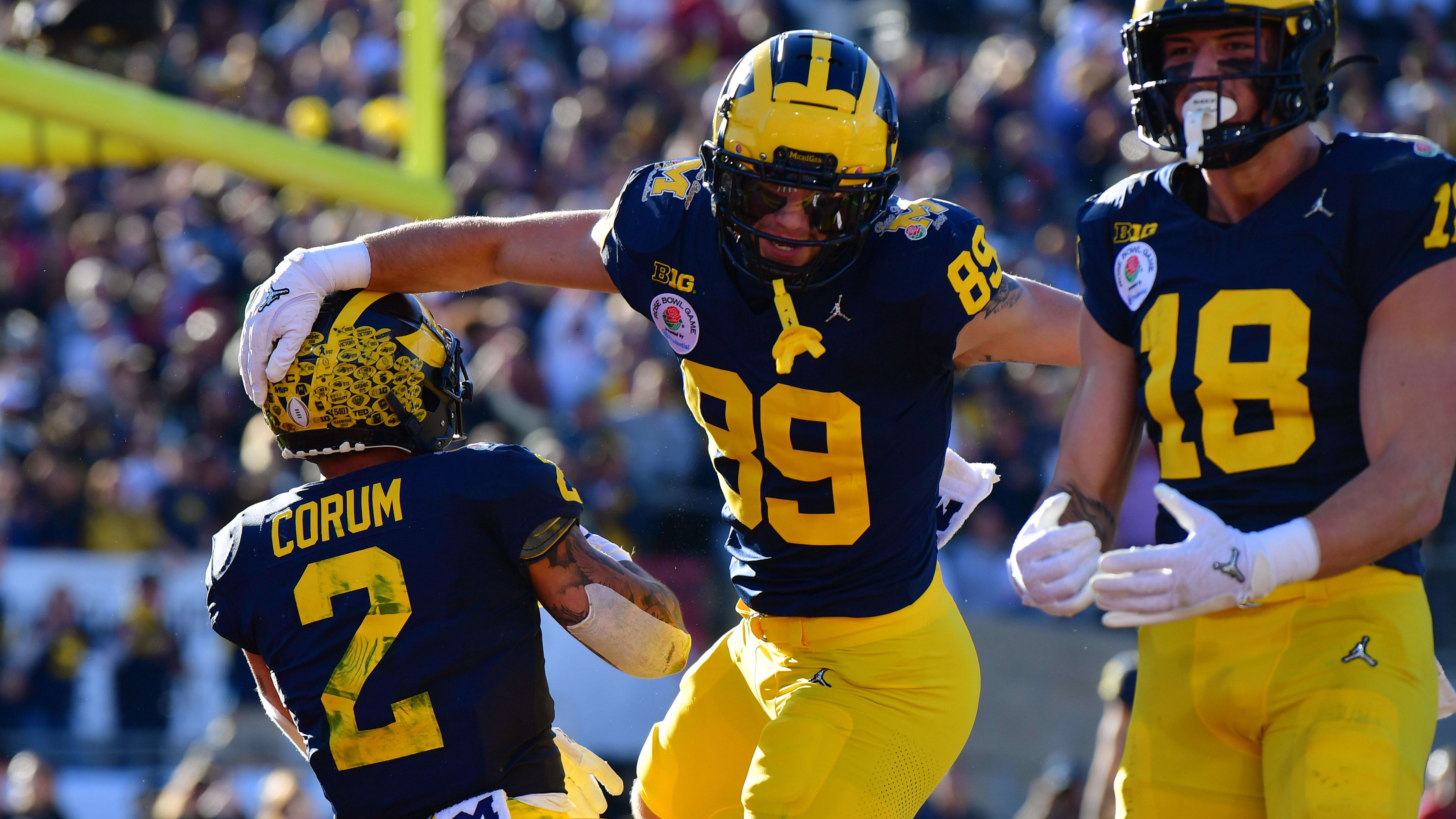
In an effort to surround quarterback Geno Smith with more weapons, the Seattle Seahawks drafted Michigan tight end AJ Barner in the fourth round of the NFL Draft on Saturday with pick No. 121 overall. After transferring to Michigan from Indiana, Barner was an important piece to the Wolverines’ National Championship-winning offense, though he primarily served as the team’s secondary tight end option behind Colson Loveland. Still, Barner was an effective blocker and gave JJ McCarthy another big-bodied option down the field, and he’lll look to build on those qualities in the pros with the Seahawks.
2024 NFL Combine or U-M Pro Day Stats
6-6, 251 pounds
40-Yard Dash: 4.84 seconds
Vertical Jump: 34.5”
Broad Jump: 9’9”
3-Cone Drill: 7.02 seconds
20-Yard Shuttle: 4.41 seconds
Bench Press: 22 reps
NFL.com Analyst Lance Zierlein’s breakdown on Barner:
“In-line tight end who continues improving as a run blocker but is unlikely to offer much as a pass catcher. He was a captain at Indiana before transferring to Michigan, and scouts say he attacks practices and weight training with a single-minded obsession to get better and compete. He’s technically sound in the early stages of the run block but needs to improve with his positioning to create better lanes for the runner. He can handle some pass protection but needs to keep improving. Barner’s role might be a little limited as a blocking Y tight end with below-average pass-catching traits, but he should earn playing time in the future.”
2023 Stats and Accolades
22 receptions for 249 yards and one touchdown
John Mackey Award sem- finalist
All-Big Ten Honorable Mention (coaches, media)
Wolverine Digest Breakdown
Though he only spent one year at Michigan, Barner should be remembered favorably for his contributions to U-M’s championship squad, contributing nine starts along the way. Barner’s blocking should translate well to the NFL, and he’s still improving as a pass catcher, so the Seahawks may have found quality value this late in the draft.
READ MORE: Nick Sabin Heaps Praise Upon Mike Sainristil After NFL Draft Selection
Do you think the Seahawks found a future starter in Barner in the fourth round? How do you see his pro career shaping up? Let us know and follow @EricJRutter on Twitter for more Wolverine Digest updates.

Seattle, WA
Timbers host rival Seattle Sounders FC in Mother’s Day Cascadia Derby | PTFC

Portland (12th, 2-5-4, 10pts) and Seattle (11th, 2-5-4, 10pts) are both sitting on the exact same record 11 matches into the 2024 season. For Phil Neville and the boys in Green & Gold, being back in the comfort of Providence Park following a stretch where they played seven of nine matches on the road is a relief.
Seattle, WA
Brock: Why Seattle Seahawks didn't keep a rookie QB

In the months leading up to the NFL Draft, whether or not the Seattle Seahawks would select a quarterback of the future was highly debated.
Ex-scout hopes Seattle Seahawks open up QB competition
Seattle didn’t end up taking a signal-caller with any of its eight picks, but it brought San Jose State’s Caden Cordeiro, Gannon’s Kory Curtis and Maryland’s Taulia Tagovailoa – the younger brother of Miami Dolphins quarterback Tua Tagovailoa – in for its rookie minicamp last week. However, none of the QBs made the cut.
Cordeiro, who was one of 16 undrafted free agents and the only QB signed by the Seahawks, was released Wednesday, and camp invitees Tagovailoa and Curtis weren’t offered contracts. In fact, Curtis didn’t appear to take a snap during team drills on Day 2 of camp Saturday.
Why didn’t the Seahawks try to hold on to any of the trio? Former NFL quarterback Brock Huard gave his thoughts on the decision Thursday during Blue 88 on Seattle Sports’ Brock and Salk.
“None of them could throw it,” Huard said. “If you’re going to play in this system, you’re going to have to (be a passer).”
The system Huard is referring to is that of first-year offensive coordinator Ryan Grubb, who spent the past two seasons leading one of the nation’s most prolific passing offenses with the UW Huskies. UW excelled with the ultra-accurate Michael Penix Jr. leading the offense, and none of the QB participants at Seahawks rookie camp displayed accuracy as a noticeable strength.
“Cordeiro is a great athlete and Tagovaiola runs around and is creative and makes plays,” Huard said, “but they’re not refined, accurate passers.”
Seattle remains with two quarterbacks on the roster in returning starter Geno Smith and offseason trade acquisition Sam Howell, who started for the Washington Commanders last season. Huard pointed out that there’s still opportunities for the Hawks to bring in more competition at quarterback.
“I think they looked at these three and just said, ‘yeah, we can do better than this. There’s going to be guys that are going to get released here. There’s gonna be other rookies that are trying out around the country, and we’ve got to find somebody who’s first and foremost trait is not their athleticism,’” Huard said. “… (The most important things are) their accuracy, their anticipation, them as a passer, and these guys just did not pass the test.”
Listen to the full Blue 88 segment at this link or in the audio player near the top of this story. Tune in to Brock and Salk weekdays from 6-10 a.m. or find the podcast on the Seattle Sports app.
More Seattle Seahawks coverage
• How will Riq Woolen fare in ‘ferocious’ Seahawks cornerback battle?
• What Huard keeps hearing about Seahawks coach Macdonald
• A rookie’s impression of Seattle Seahawks’ new coaches from UW
• What improvements Bump wants to see from Seahawks’ JSN
• How will new XFL-style kickoff rules impact Seattle Seahawks?
Seattle, WA
Uber, Doordash, and other gig workers in Seattle may be about to face a pay reckoning
Since January, gig delivery workers in Seattle have been reaping the benefits of a local law mandating a certain pay level. Just months later, they could see their incomes cut under proposed revisions.
PayUp, which took effect in the city in January, requires DoorDash, Uber, Instacart, Grubhub, and other delivery apps to pay independent contractors the equivalent of the city’s $19.97 minimum wage — a rule that the app companies have opposed.
But CB 120775, a proposal introduced last month by Seattle City Council President Sara Nelson, would lower the minimum pay for drivers and roll back protections for workers, according to a draft of the legislation.
Under the proposal, gig workers would be paid an hourly rate of $19.97 for their time spent retrieving and delivering orders. While that seems consistent with Seattle’s minimum wage for employees, the gig workers covered by the PayUp law are only paid for “active time” spent working on orders — meaning that time spent trying to claim an order is uncompensated. They’re also responsible for their own costs, such as gas.
Those aspects of the job had led Seattle’s city council to create a system that pays workers based on the miles they drive and the minutes they spend on the job. PayUp also demands that no offer pays less than $5.
The latest proposal would do away with that $5 minimum and the per-minute payment. Instead, gig workers would get paid 35 cents per mile — down from the current 74 cents.
It would also eliminate or cut back other protections for gig workers in the city. For example, a PayUp rule giving workers two minutes to review an order before accepting it would shrink to 45 seconds.
The bill is scheduled for a committee vote on Thursday. If it passes, the proposal could face a vote by the full Council on May 21.
‘That makes a difference’
If that vote passes, the bill will result in a significant pay cut for gig workers, according to estimates released Monday by Working Washington, a group that advocated for PayUp. For example, a gig worker who spent five hours of active time and drove 32 miles would make $15.81 an hour — below the city’s minimum wage — after accounting for expenses, they calculated.
Hourly pay would be even lower — $13.17 — after accounting for the time that a gig worker would likely spend on the apps just to find and claim orders, according to the study.
Justin Taylor, who has delivered and driven for multiple apps in Seattle over the last four years, said his pay has increased by $100 a week on average since PayUp went into effect — even though he’s delivering fewer orders than he did before the law.
“That makes a difference,” he told BI. “It allowed me to do things like install new front brakes on my car.”
If the proposal before Seattle’s City Council becomes law, Taylor said, he’ll once again be reliant on customers’ tips to cover his expenses and make money working for services like DoorDash.
The delivery companies have made it clear that they oppose the changes that took effect in January. In emails and calls to action sent to gig workers, DoorDash, Instacart, Uber, and others have claimed that there are fewer orders for gig workers to claim.
Some shoppers for Instacart have also had to drive miles out of their way to deliver orders in Seattle’s suburbs as the company routed them to stores outside city limits.
Seattle City Council President Nelson did not respond to a request for an interview from Business Insider. In a hearing on the bill on April 25, Nelson said that she had worked with some of the delivery companies as well as Drive Forward, a group whose leadership includes multiple current and former employees for Uber and DoorDash, to draft the bill.
“I want to make sure that people realize this was an agreement that was forged between Drive Forward and the network companies,” she told the Council.
A DoorDash spokesperson told BI: “Predictably, Working Washington’s opposition to this proposal is not rooted in reality. The proposed law guarantees Dashers will earn nearly $20 per hour on delivery in addition to mileage and tips. We’re grateful that Council President Nelson and Drive Forward were able to reconvene stakeholders and reach a compromise that better serves Dashers, local businesses, and consumers in Seattle.”
A spokesperson for Instacart said the company “supports the pragmatic approach being taken by the new Seattle City Council as they balance the needs of workers, customers, and businesses across the city and reform the current version of PayUp legislation.”
“Uber supports the complete package, and believes it will go a long way to ease the operational burdens and costs experienced by customers throughout Seattle and reduce delivery times,” a spokesperson told BI.
But gig worker Taylor said he was dismayed that the delivery companies have had such a direct role in developing the bill that would replace PayUp.
“To me, it’s basically saying we’re allowing lobbyists to write our laws,” Taylor said.
Do you deliver food, groceries, or other items as a gig worker and have a story idea to share? Reach out to this reporter at abitter@businessinsider.com
-

 World1 week ago
World1 week agoStrack-Zimmermann blasts von der Leyen's defence policy
-

 Politics1 week ago
Politics1 week agoStefanik hits special counsel Jack Smith with ethics complaint, accuses him of election meddling
-

 Politics1 week ago
Politics1 week agoThe White House has a new curator. Donna Hayashi Smith is the first Asian American to hold the post
-

 Politics1 week ago
Politics1 week agoDemocratic mayor joins Kentucky GOP lawmakers to celebrate state funding for Louisville
-

 World1 week ago
World1 week agoTurkish police arrest hundreds at Istanbul May Day protests
-

 News1 week ago
News1 week agoVideo: Police Arrest Columbia Protesters Occupying Hamilton Hall
-

 Politics1 week ago
Politics1 week agoNewsom, state officials silent on anti-Israel protests at UCLA
-

 News1 week ago
News1 week agoPolice enter UCLA anti-war encampment; Arizona repeals Civil War-era abortion ban
